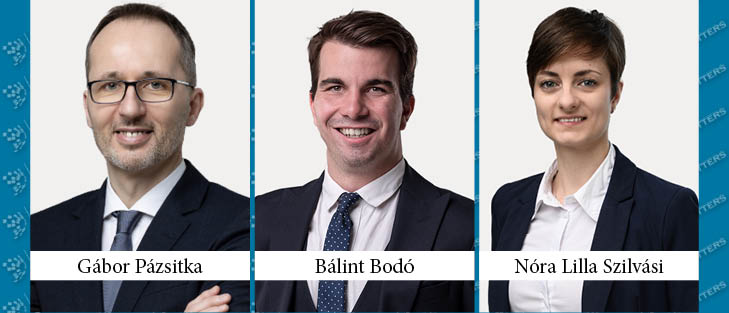The National Bank of Hungary (NBH) introduced a new guideline No. NBH's 9/2024, also known as the ESG (Environmental, Social and Governance) Guideline. This initiative aims to help financial institutions incorporate sustainability considerations into their risk management processes. The Guideline seeks to standardise the collection and assessment of ESG information, thereby enhancing predictability in legal compliance and reducing administrative burdens for businesses applying for credit.
Purpose and scope
The primary objective of the Guideline is to establish a standardised questionnaire for financial organisations to use during credit risk assessment. This will ensure that ESG information is consistently collected and evaluated, facilitating a more uniform application of the regulations. The Guideline applies to Hungarian financial institutions as well as branches of foreign institutions in Hungary.
Key components of the ESG questionnaire
The ESG questionnaire, detailed in the NBH's recommendation, is divided into four main thematic blocks and 15 sub-blocks, covering the following topics:
- General information
- Company size
- Activities
- Environmental factors
- Climate change mitigation
- Adaptation to climate change
- Sustainable use and protection of water resources
- Transition to a circular economy
- Pollution prevention and reduction
- Protection and restoration of biodiversity and ecosystems
- Social factors
- Employee relations
- Impact on society
- Consumer relations
- Governance factors
- Reporting
- Supplier evaluation
- Ethical conduct
- Corporate governance
Implementation and compliance
The NBH expects financial organisations to incorporate the ESG questionnaire into their credit risk assessment processes. This involves collecting ESG information from new corporate loan applicants and integrating it into their risk management process. The Guideline also emphasises the importance of maintaining an up-to-date database of ESG information, which should include details such as the time of data collection, reference period and any significant ESG risks identified.
The NBH developed the Guideline in collaboration with the Supervisory Authority for Regulated Activities (SZTFH), which oversees compliance with ESG reporting under the Hungarian ESG Act (Act CVIII of 2023). However, the Guideline focuses solely on the credit assessment process and not on general compliance with the ESG Act.
Alignment with international standards
The ESG Guideline aligns with several international and European regulations, such as the Non-Financial Reporting Directive (NFRD), the Taxonomy Regulation, the Corporate Sustainability Reporting Directive (CSRD) and the European Sustainability Reporting Standards (EFRS). Such alignment ensures that the ESG information collected in Hungary meets global standards, making Hungarian sustainability reports more comparable and reliable.
Future developments
The Guideline outlines a phased implementation plan with different compliance deadlines based on the size of the loan agreements.
Financial organisations are expected to apply the Guideline to new corporate loans exceeding HUF 500m (approx. EUR 1,244,986) from 1 July 2025, with progressively lower thresholds in subsequent years (HUF 350m from 2026, HUF 200m from 2027, and HUF 100m from 2028). Financial institutions may voluntarily apply the questionnaire even for lower contractual amounts or from earlier dates.
Furthermore, the Guideline differentiates between micro, small, medium and large companies regarding the number of questions to be answered from the 62 questions and the level of detail required from the potential 321 items to be disclosed.
In compliance with the Guideline, financial organisations must, from 1 January 2025, publish information on their website highlighting the requirements for collecting ESG information.
By Gabor Pazsitka, Partner, Balint Bodo and Nora Lilla Szilvasi, Associates, Schoenherr




